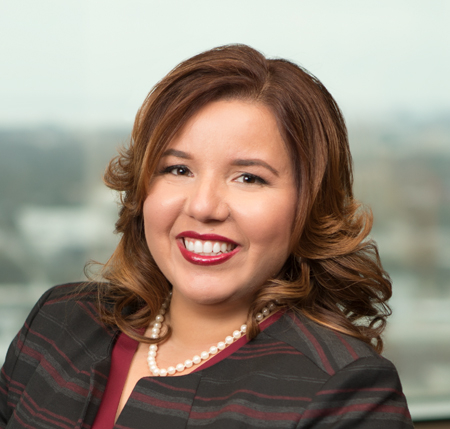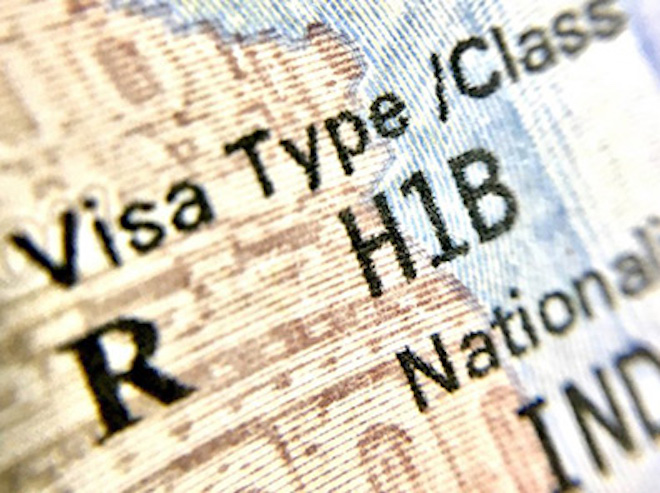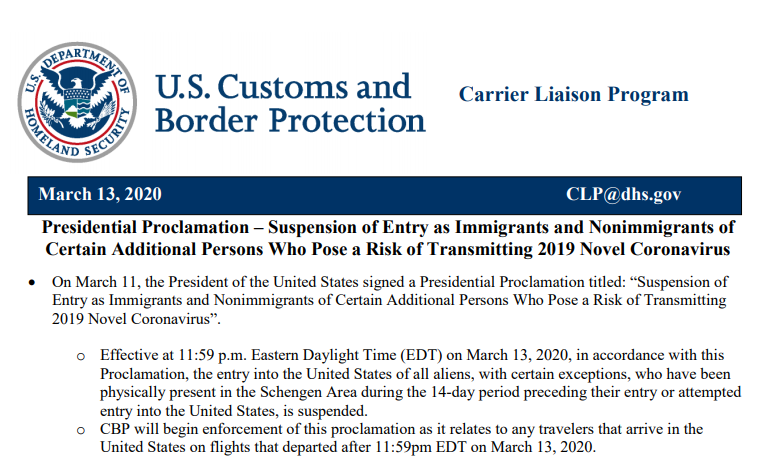Under pre-existing federal law, all employers are required to complete a Form I-9 for each newly hired employee in order to verify the identity and eligibility of that employee to work in the United States. Continue reading “Florida Governor Signs New E-Verify Law for Employers”
Author: Maria del Carmen Ramos
Catch-22: Potential Nonimmigrant Visa Issues Employers Should Be Aware Because of COVID-19 Related Furloughs and Shut Downs
 What employers are going through today is something that hasn’t been seen in more than a century. To stem the tide of a global pandemic, more and more state and local governments are entering “Stay at Home” or “Shelter in Place” orders requiring businesses to shut down and close their doors. Continue reading “Catch-22: Potential Nonimmigrant Visa Issues Employers Should Be Aware Because of COVID-19 Related Furloughs and Shut Downs”
What employers are going through today is something that hasn’t been seen in more than a century. To stem the tide of a global pandemic, more and more state and local governments are entering “Stay at Home” or “Shelter in Place” orders requiring businesses to shut down and close their doors. Continue reading “Catch-22: Potential Nonimmigrant Visa Issues Employers Should Be Aware Because of COVID-19 Related Furloughs and Shut Downs”
DHS Provides Employers with Some I-9 Flexibility
 By way of background, under the Immigration Reform and Control Act of 1986, employers are required to complete a Form I-9 for each newly hired employee. The purpose of the Form I-9 is to verify the identity of each new employee and ensure that the new employee is authorized to work in the United States. The Form I-9 contains a list of acceptable documents for establishing an employee’s identity and authorization to work. Continue reading “DHS Provides Employers with Some I-9 Flexibility”
By way of background, under the Immigration Reform and Control Act of 1986, employers are required to complete a Form I-9 for each newly hired employee. The purpose of the Form I-9 is to verify the identity of each new employee and ensure that the new employee is authorized to work in the United States. The Form I-9 contains a list of acceptable documents for establishing an employee’s identity and authorization to work. Continue reading “DHS Provides Employers with Some I-9 Flexibility”
USCIS Announces Flexibility in Submitting Required Signatures During COVID-19 National Emergency
 U.S. Citizenship and Immigration Services today announced that, due to the ongoing COVID-19 National Emergency announced by President Trump on March 13, 2020, we will accept all benefit forms and documents with reproduced original signatures, including the Form I-129, Petition for Nonimmigrant Worker, for submissions dated March 21, 2020, and beyond.
U.S. Citizenship and Immigration Services today announced that, due to the ongoing COVID-19 National Emergency announced by President Trump on March 13, 2020, we will accept all benefit forms and documents with reproduced original signatures, including the Form I-129, Petition for Nonimmigrant Worker, for submissions dated March 21, 2020, and beyond.
USCIS already accepts various petitions, applications and other documents bearing an electronically reproduced original signature. This means that a document may be scanned, faxed, photocopied, or similarly reproduced provided that the copy must be of an original document containing an original handwritten signature, unless otherwise specified.[1] For forms that require an original “wet” signature, per form instructions, USCIS will accept electronically reproduced original signatures for the duration of the National Emergency. This temporary change only applies to signatures. All other form instructions should be followed when completing a form.
Individuals or entities that submit documents bearing an electronically reproduced original signature must also retain copies of the original documents containing the “wet” signature. USCIS may, at any time, request the original documents, which if not produced, could negatively impact the adjudication of the immigration benefit.
[1] See Volume 1, General Policies and Procedures, Part B, Submission of Benefit Requests, Chapter 2, Signatures [1 USCIS-PM B.2].
USCIS Announces Temporary Suspension of Premium Processing for All I-129 and I-140 Petitions Due to the Coronavirus Pandemic
 U.S. Citizenship and Immigration Services today announced the immediate and temporary suspension of premium processing service for all Form I-129 and I-140 petitions until further notice due to Coronavirus Disease 2019 (COVID-19).
U.S. Citizenship and Immigration Services today announced the immediate and temporary suspension of premium processing service for all Form I-129 and I-140 petitions until further notice due to Coronavirus Disease 2019 (COVID-19).
Effective today, March 20, 2020, USCIS will not accept any new requests for premium processing. USCIS will process any petition with a previously accepted Form I-907, Request for Premium Processing Service, in accordance with the premium processing service criteria. However, we will not be able to send notices using pre-paid envelopes. We will only send batch-printed notices. Petitioners who have already filed a Form I-129, Petition for a Nonimmigrant Worker, or Form I-140, Immigrant Petition for Alien Workers, using the premium processing service and who receive no agency action on their case within the 15-calendar-day period will receive a refund, consistent with 8 CFR 103.7(e). We will notify the public with a confirmed date for resuming premium processing.
USCIS will reject the I-907 and return the $1,440 filing fee for all petitions requesting premium processing that were mailed before March 20 but not yet accepted.
This temporary suspension includes petitions filed for the following categories:
- I-129: E-1, E-2, H-1B, H-2B, H-3, L-1A, L-1B, LZ, O-1, O-2, P-1, P-1S, P-2, P-2S, P-3, P-3S, Q-1, R-1, TN-1 and TN-2.
- I-140: EB-1, EB-2 and EB-3.
This includes new premium processing requests for all H-1B petitions, including H-1B cap-subject petitions for fiscal year 2021, petitions from previous fiscal years, and all H-1B petitions that are exempt from the cap. USCIS previously announced the temporary suspension of premium processing for FY 2021 cap-subject petitions and tentative dates for resumption of premium processing service. This announcement expands upon and supersedes the previous announcement.
For current Form I-129 and I-140 processing times, visit the Check Case Processing Times page and the H-1B page on the USCIS website.
USCIS Announces Temporary Suspension of Premium Processing for FY2021 Cap-Subject Petitions
 U.S. Citizenship and Immigration Services today announced the temporary suspension of premium processing service for fiscal year (FY) 2021 cap-subject.
U.S. Citizenship and Immigration Services today announced the temporary suspension of premium processing service for fiscal year (FY) 2021 cap-subject.Petitioners filing FY 2021 cap-subject H-1B petitions will not be able to request premium processing when USCIS begins accepting cap-subject petitions on April 1. Until premium processing resumes for FY 2021 cap-subject H-1B petitions, USCIS will reject any Form I-907 concurrently filed with a cap-subject H-1B Form I-129.
As USCIS has done in the past, premium processing will resume in a two-phased approach during the FY 2021 cap season so that USCIS can best manage premium processing requests. The first phase will include FY 2021 cap-subject H-1B petitions, including those eligible for the advanced degree exemption, requesting a change of status from F-1 nonimmigrant status. The second phase will include all other FY 2021 cap-subject petitions.
USCIS Announces Temporary Office Closure
|
To protect our workforce and to help mitigate the spread of Coronavirus Disease (COVID-19) in our communities, effective immediately, USCIS is suspending all routine face-to-face services with applicants at all of our offices, including all interviews and naturalization ceremonies. All USCIS field offices, asylum offices and Application Support Centers (ASCs) will not provide in-person services until at least April 1. This includes interviews, naturalization ceremonies and biometric collection appointments. However, we will continue to provide emergency services during this time. If you have an emergency service request, please contact the USCIS Contact Center. USCIS field offices will send de-scheduling notices to applicants and petitioners with scheduled appointments impacted by this closure. We will send de-scheduling notices to naturalization applicants scheduled for naturalization ceremonies. All applicants will be rescheduled when USCIS resumes normal operations. |
Presidential Proclamation – Suspension of Entry as Immigrants and Nonimmigrants of Certain Additional Persons Who Pose a Risk of Transmitting 2019 Novel Coronavirus
 On March 11, the President of the United States signed a Presidential Proclamation titled: “Suspension of Entry as Immigrants and Nonimmigrants of Certain Additional Persons Who Pose a Risk of Transmitting 2019 Novel Coronavirus”.
On March 11, the President of the United States signed a Presidential Proclamation titled: “Suspension of Entry as Immigrants and Nonimmigrants of Certain Additional Persons Who Pose a Risk of Transmitting 2019 Novel Coronavirus”.
- Effective at 11:59 p.m. Eastern Daylight Time (EDT) on March 13, 2020, in accordance with this Proclamation, the entry into the United States of all aliens, with certain exceptions, who have been physically present in the Schengen Area during the 14-day period preceding their entry or attempted entry into the United States, is suspended.
- CBP will begin enforcement of this proclamation as it relates to any travelers that arrive in the United States on flights that departed after 11:59pm EDT on March 13, 2020.
Forbes: Critics Charge Slow Immigration Processing Nets USCIS Billions In Fees
 Due to long processing times, since 2014 companies have been forced to pay $2.4 billion in “premium processing” fees to ensure their business immigration cases are decided within a reasonable time. Critics say U.S. Citizenship and Immigration Services (USCIS) has no incentive to process cases faster because the more time it takes, the greater the revenue the agency receives in additional premium processing fees.
Due to long processing times, since 2014 companies have been forced to pay $2.4 billion in “premium processing” fees to ensure their business immigration cases are decided within a reasonable time. Critics say U.S. Citizenship and Immigration Services (USCIS) has no incentive to process cases faster because the more time it takes, the greater the revenue the agency receives in additional premium processing fees.
To understand premium processing, imagine you sat down at a restaurant and saw a large asterisk next to the price of an entrée that costs $20.
“What does this asterisk mean?” you asked.
“It means the meal costs $20 but you have to sit here for 9 hours before I bring it out so you can eat it,” said the waiter. Continue reading “Forbes: Critics Charge Slow Immigration Processing Nets USCIS Billions In Fees”
Economic Times: US agency slows H-1B denials as lawsuits mount
 A US agency that administers the visa application process is denying fewer H-1B visas following stepped-up filing of lawsuits, immigration lawyers said. This comes despite the US Citizenship and Immigration Services (USCIS) seeking more Requests for Evidence (RFEs) from H1-B visa applicants.
A US agency that administers the visa application process is denying fewer H-1B visas following stepped-up filing of lawsuits, immigration lawyers said. This comes despite the US Citizenship and Immigration Services (USCIS) seeking more Requests for Evidence (RFEs) from H1-B visa applicants.
Several immigration lawyers told ET that more lawsuits are being filed against the USCIS.
Deepali Khadakban, a member of an industry body representing over 1,250 small and medium staffing and IT firms doing combined business worth over $5 billion, said its member firms have taken the USCIS head-on in the last two years, filing over 133 cases challenging visa denials. The ITServe Alliance works with companies like Google, Ebay and Bank of America.
To read this article in full, please visit the Economic Times Tech website found here.

